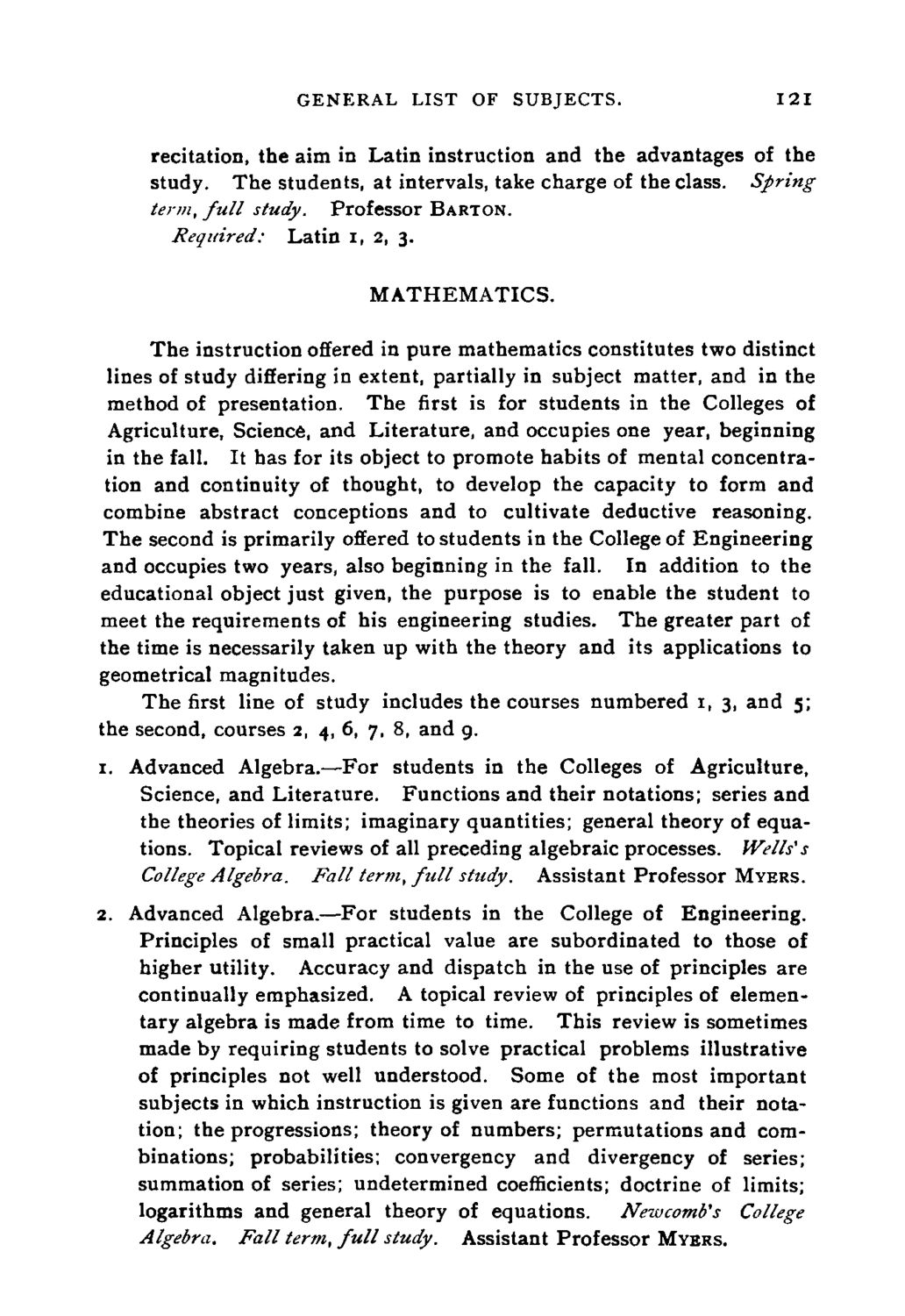| |
| |
Caption: Course Catalog - 1893-1894
This is a reduced-resolution page image for fast online browsing.

EXTRACTED TEXT FROM PAGE:
GENERAL LIST OF SUBJECTS. 121 recitation, the aim in Latin instruction and the advantages of the study. The students, at intervals, take charge of the class. Spring term, full study. Professor BARTON. Required: Latin I, 2, 3. MATHEMATICS. The instruction offered in pure mathematics constitutes two distinct lines of study differing in extent, partially in subject matter, and in the method of presentation. The first is for students in the Colleges of Agriculture, Science, and Literature, and occupies one year, beginning in the fall. It has for its object to promote habits of mental concentration and continuity of thought, to develop the capacity to form and combine abstract conceptions and to cultivate deductive reasoning. The second is primarily offered to students in the College of Engineering and occupies two years, also beginning in the fall. In addition to the educational object just given, the purpose is to enable the student to meet the requirements of his engineering studies. The greater part of the time is necessarily taken up with the theory and its applications to geometrical magnitudes. The first line of study includes the courses numbered 1, 3, and 5; the second, courses 2, 4, 6, 7, 8, and 9. 1. Advanced Algebra.—For students in the Colleges of Agriculture, Science, and Literature. Functions and their notations; series and the theories of limits; imaginary quantities; general theory of equations. Topical reviews of all preceding algebraic processes. Wells's College Algebra. Fall term, full study. Assistant Professor MYERS. 2. Advanced Algebra.—For students in the College of Engineering. Principles of small practical value are subordinated to those of higher utility. Accuracy and dispatch in the use of principles are continually emphasized. A topical review of principles of elementary algebra is made from time to time. This review is sometimes made by requiring students to solve practical problems illustrative of principles not well understood. Some of the most important subjects in which instruction is given are functions and their notation; the progressions; theory of numbers; permutations and combinations; probabilities; convergency and divergency of series; summation of series; undetermined coefficients; doctrine of limits; logarithms and general theory of equations. Newcomb's College Algebra. Fall term, full study. Assistant Professor MYERS.
| |